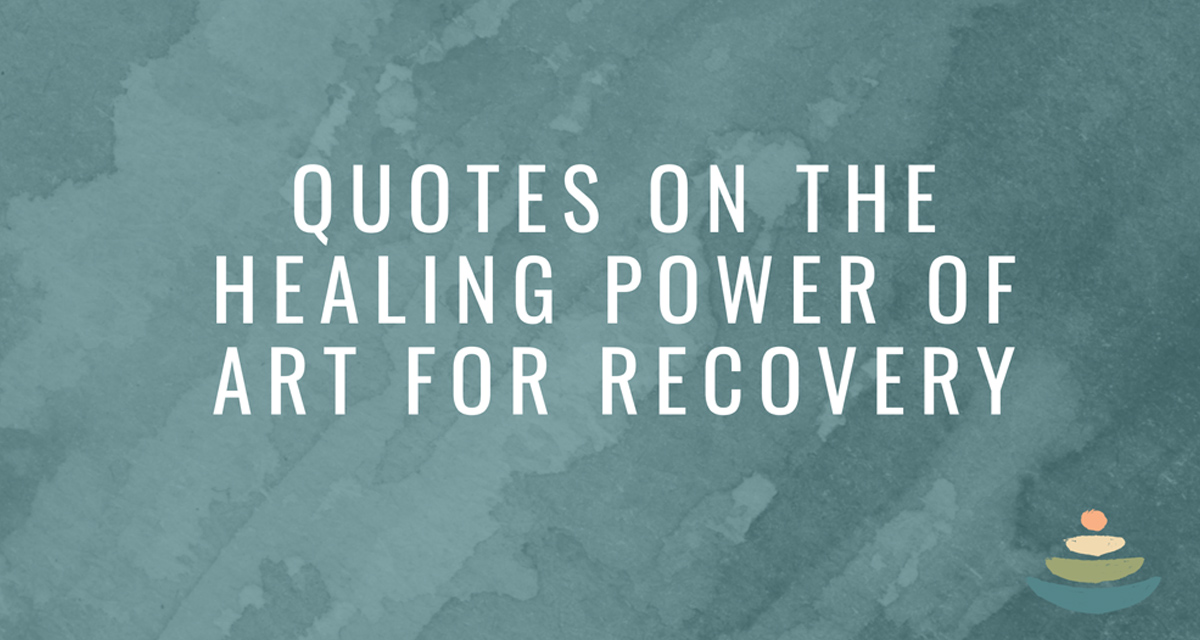The potential for creative expression to enhance stress relief, boost mood, and provide a sense of accomplishment is immense, even for the average person. But, as someone who has been active in the recovery community for over two decades, I’ve witnessed (and experienced for myself) some truly amazing healing facilitated through the lens of the arts. That’s why art therapy is so popular – and so effective – for people experiencing substance use disorder.
The practice certainly isn’t new; many cultures consider participation in the arts as a vital component of healing. So, while people in recovery often find communicating their stories difficult, and both stress and underlying mental health issues can exacerbate the anxiety and despair many feel when approaching treatment or recovery, art therapy can be a wonderful solution. Art for recovery is a minimally invasive way to address trauma, explore emotions, calm intrusive thoughts and quiet anxieties, and even begin to reshape your behavior patterns as you begin to reshape your life.
Although I am not an art therapist, I have seen the power of art for therapy at work in my own life, and I continue to create art today. I’d like to reflect on some of my favorite quotes about art therapy and explore how art may be able to help you or your loved one enhance recovery.
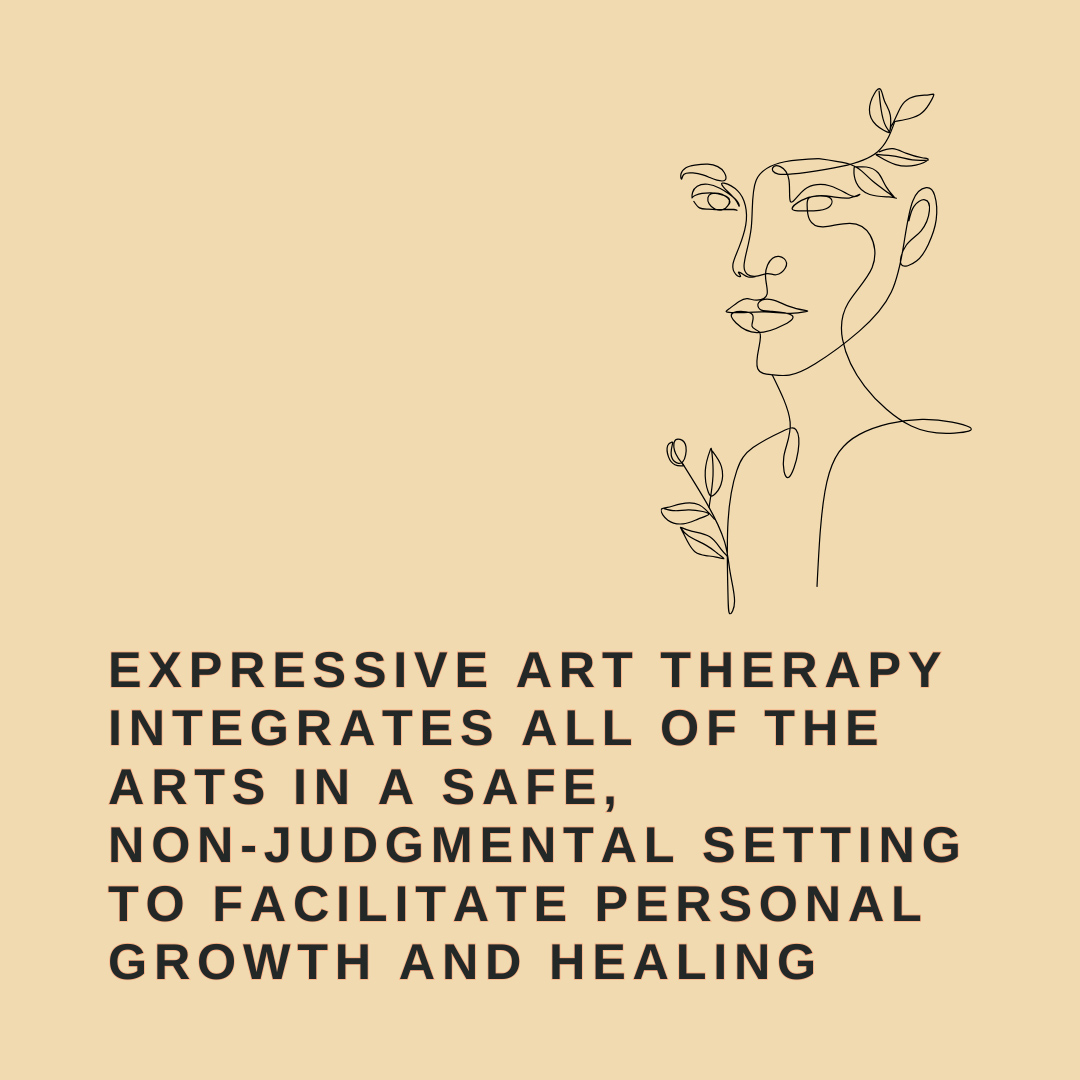
“Expressive Art Therapy Integrates All of the Arts in a Safe, Non-Judgmental Setting to Facilitate Personal Growth and Healing”
Natalie Rogers was a renowned American psychologist and the daughter of influential humanistic psychologist Carl Rogers. She is considered a pioneer in the field of expressive arts therapy. Her statement emphasizes the ability of art to provide a space for expression that is free from judgment.
Many people who struggle with a substance use disorder also carry the weight of past trauma. Personal growth and healing through art can give you the strength you need to process the past in a healthy manner and see the recovery process through.
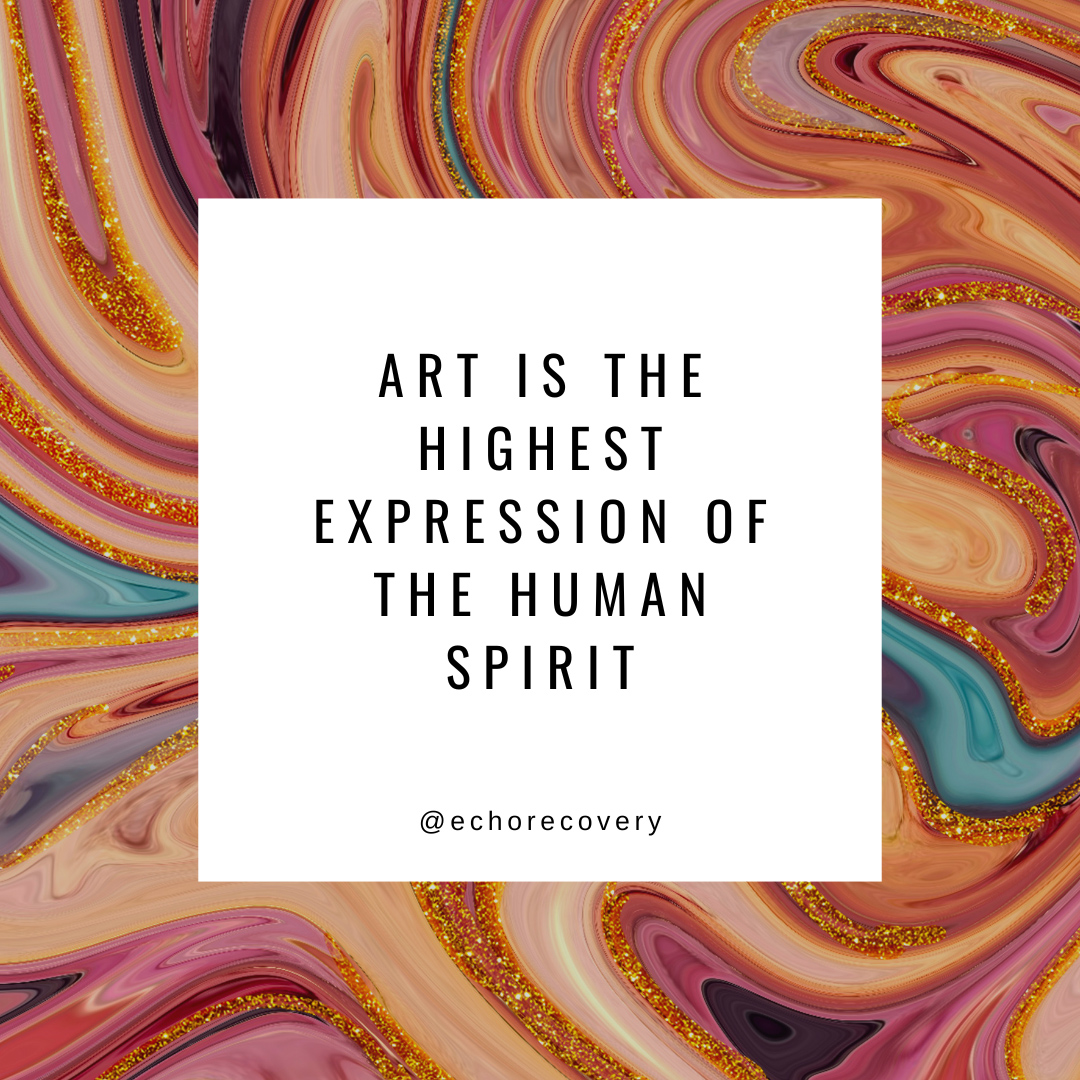
“Art Is the Highest Expression of the Human Spirit”
Pablo Picasso is one of the world’s best-known artists, famous for inventing the radical art style known as Cubism and pushing the limits of expression through art. This statement about art reminds us that art is a lofty pursuit, but it is intrinsically interconnected with the human spirit. In the context of recovery, participating in art therapy does not require prior experience in art making; all you’ll need is the willingness to be open to the power of art to transform and heal.
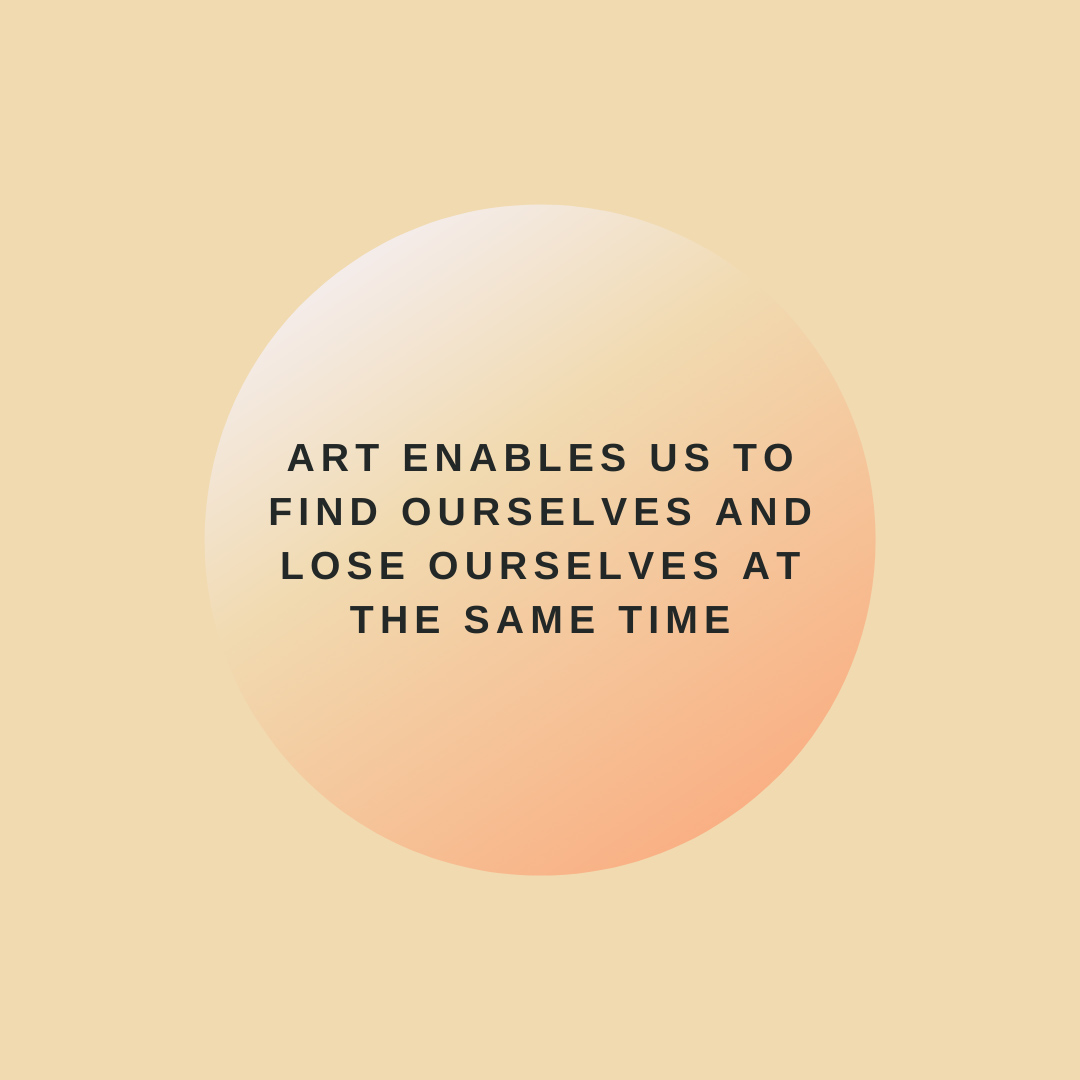
“Art Enables Us to Find Ourselves and Lose Ourselves at the Same Time”
Thomas Merton was an American Trappist monk, writer, theologian, and poet known for his contemplative spirituality and works on social justice, nonviolence, and interfaith dialogue. Merton’s quote is a unique insight that highlights art’s ability to be a source for exploration and discovery, as well as an opportunity to become immersed in the spiritual aspect of creation.
If you’re dealing with a substance use disorder, the freedom to delve into the inner recesses of your mind and spirit can lead to insights that will benefit your recovery.
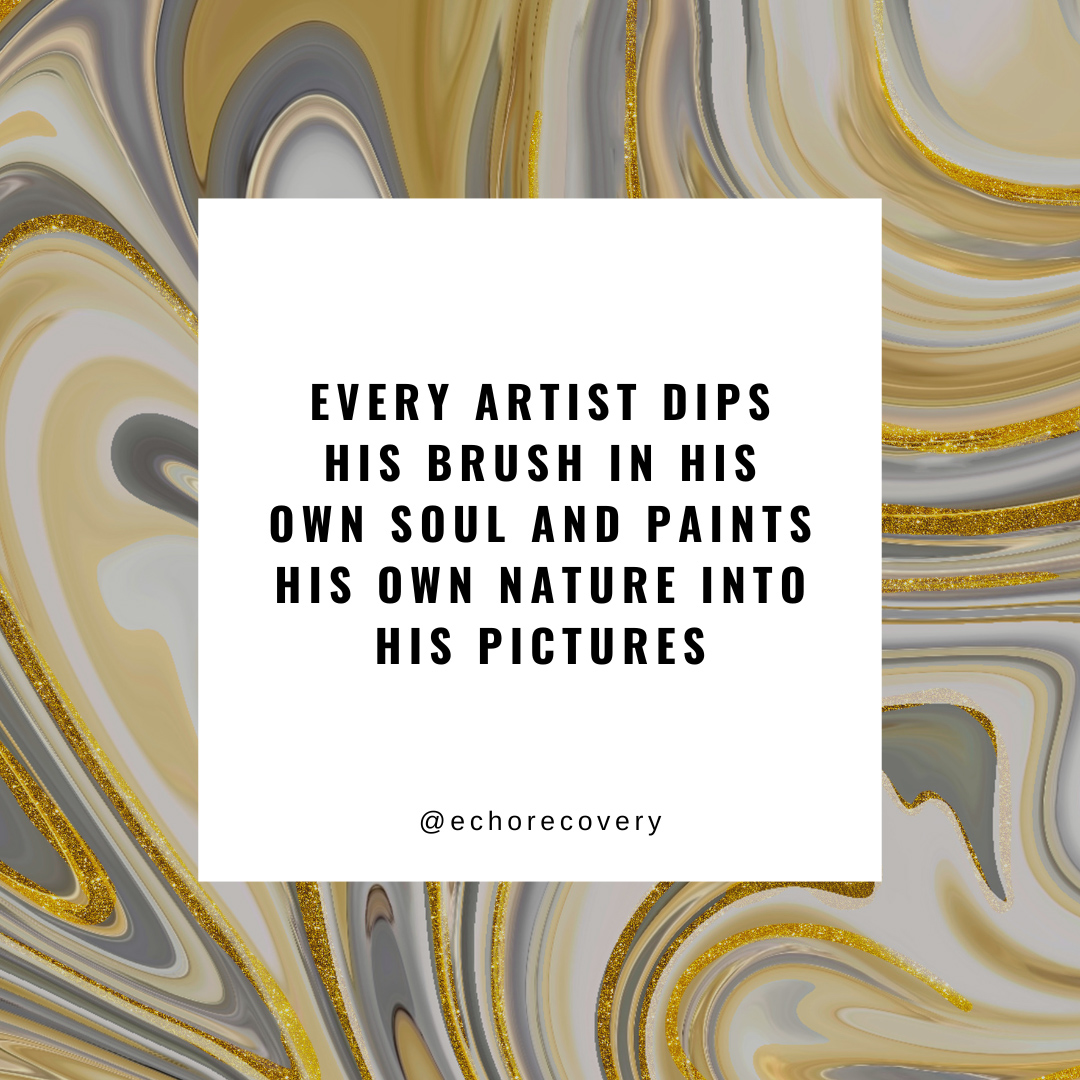
“Every Artist Dips His Brush in His Own Soul and Paints His Own Nature into His Pictures”
Henry Ward Beecher was a 19th-century American clergyman, social reformer, and abolitionist known for his powerful sermons and outspoken advocacy for the abolition of slavery. Like many other quotes about creativity, this quote from Beecher emphasizes the personal aspects of painting and art.
The quote also recognizes that the final art product is often a close reflection of the creator. By reflecting on your artwork, you can gain insights about yourself that can help you begin to heal.
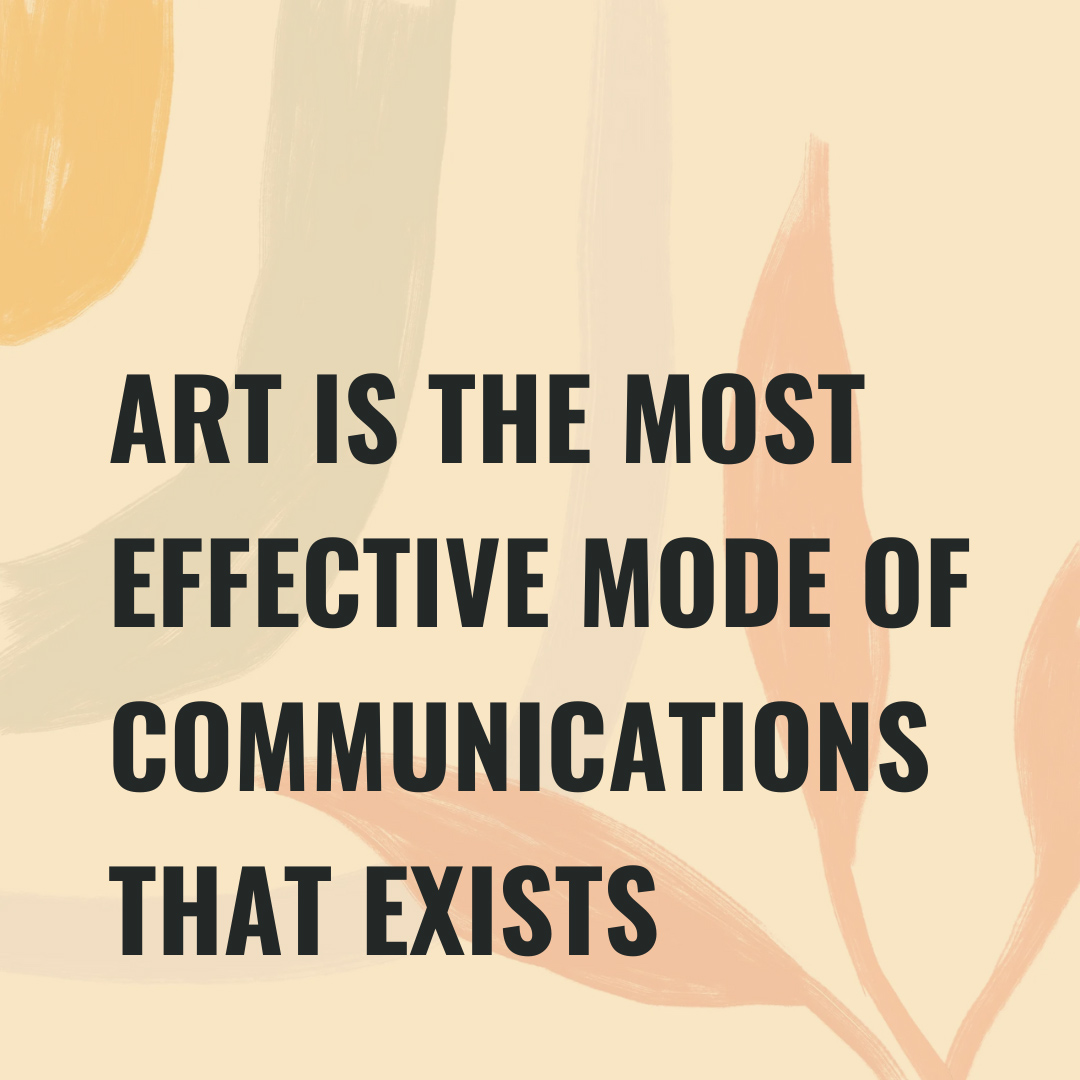
“Art Is the Most Effective Mode of Communications That Exists”
John Dewey was an American philosopher, psychologist, and educational reformer best known for his work in developing pragmatism and progressive education. Dewey describes art’s ability to communicate without the use of words. This quality is one of the most beneficial aspects of art therapy in that it enables people to engage in the therapeutic practice without needing to find the words to describe their experiences.
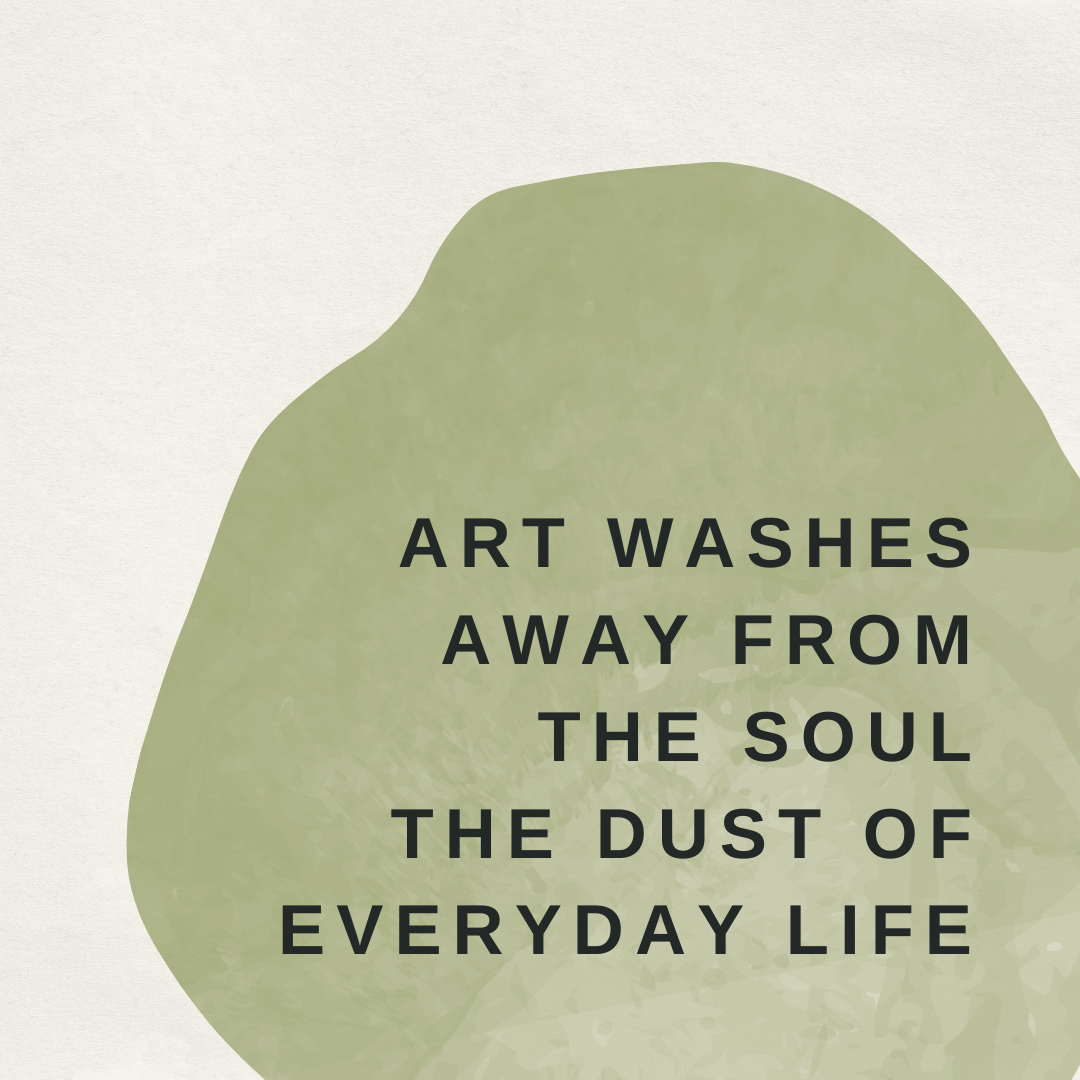
“Art Washes Away from the Soul the Dust of Everyday Life”
Another quote by Pablo Picasso, this one describes the ability of art to elevate the senses. Many people in the midst of substance use disorder are so focused on surviving within their immediate circumstances that they are unable to see past everyday life. Art can help you remove the trivial, stressful concerns and focus on what’s in your soul.
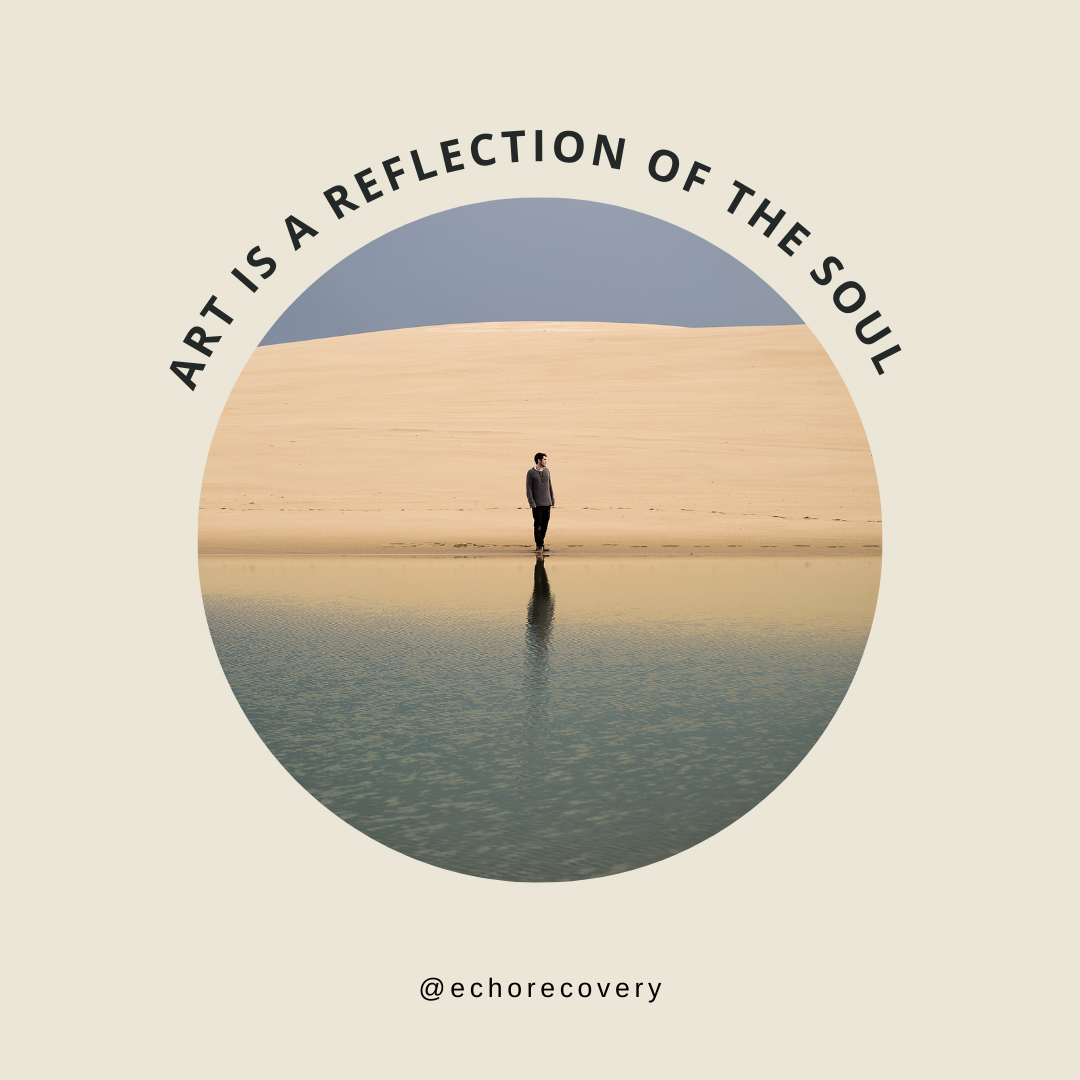
“Art Is a Reflection of the Soul”
Art therapy quotes like this one from an unknown author remind us that art often reflects the positive – and negative – attributes of the artist. If you’re someone with a substance use disorder, seeing that you can create something of beauty can be an important reminder of the beauty within you. The creative process can be harnessed by a great art therapist to help reframe your negative thoughts about yourself and your current situation.
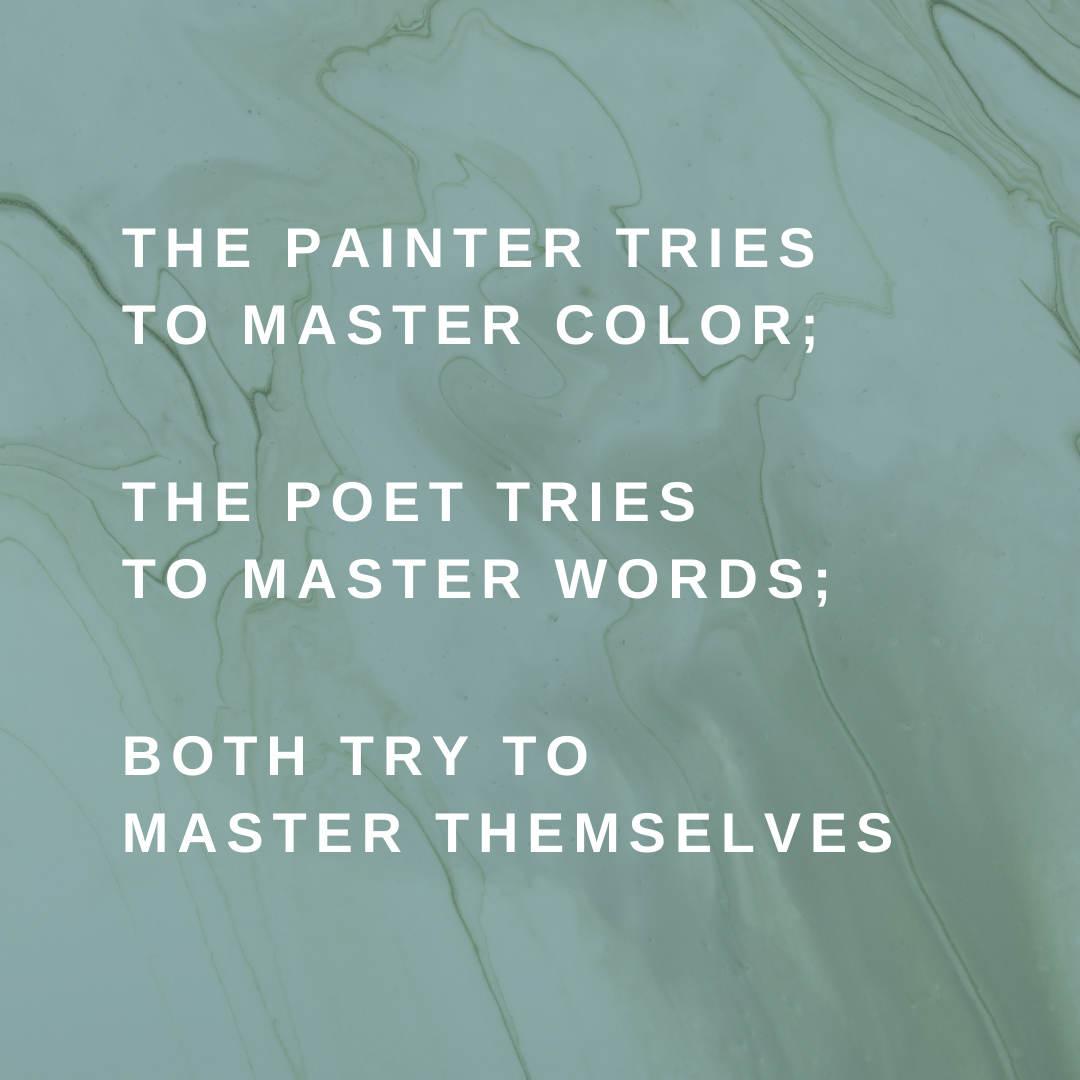
“The Painter Tries to Master Color; the Poet Tries to Master Words; Both Try to Master Themselves”
Another anonymous author penned this quote that muses on the potential of art to help with self-knowledge, self-control, and mastery of the self. Whether your artistic tools are paints or words, the focus, inner reflection, and therapeutic aspects provided by creation can help you master the self. This achievement comes after you’ve devoted time and effort to mastering the tools of your artistic trade and is its own reward at the end of the artistic journey.
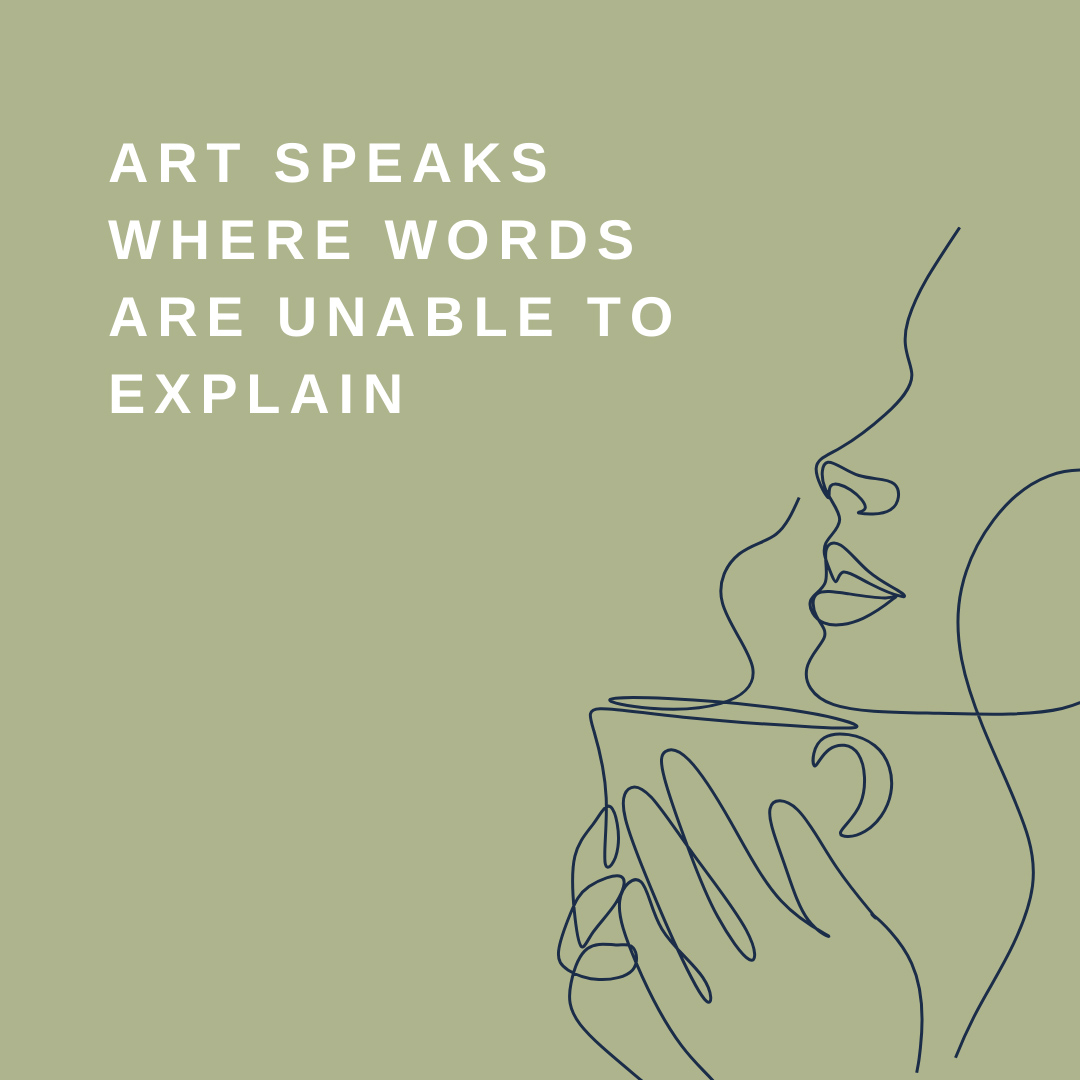
“Art Speaks Where Words Are Unable to Explain”
This quote reflects the core of art therapy: creative expression as a powerful language for emotions that words can’t convey. During more formal treatment therapies, people often struggle to verbalize their complex feelings or traumas. Art, however, can become a way to express those emotions visually or physically.
This process allows for deeper healing and understanding of yourself, especially in recovery and mental health treatment.
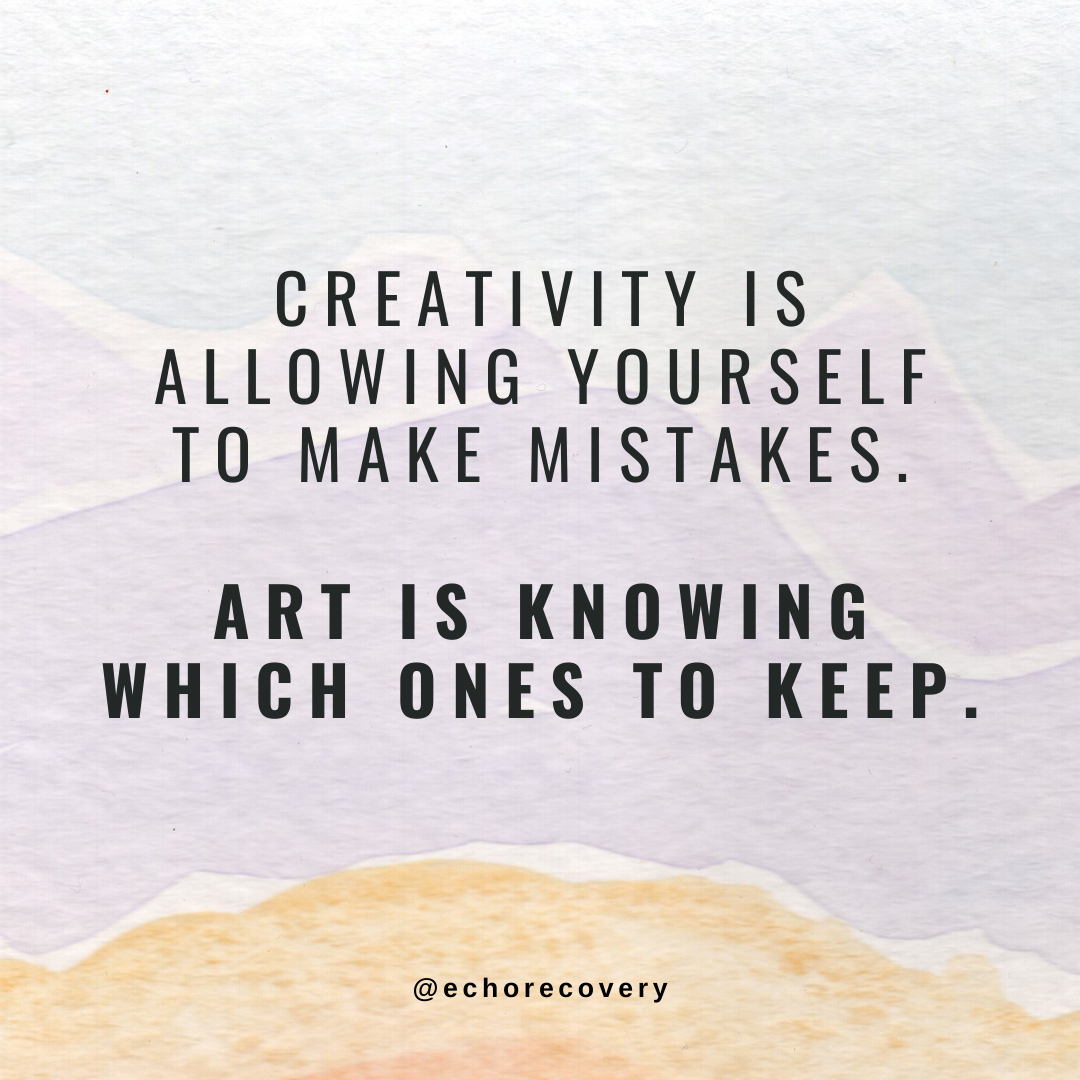
“Creativity Is Allowing Yourself to Make Mistakes. Art Is Knowing Which Ones to Keep”
This quote, attributed to Scott Adams, highlights the importance of embracing imperfection in the creative process, a key aspect of art therapy. In therapy, we learn that mistakes and flaws are part of growth, and through creating art, we can accept these aspects of ourselves. By recognizing the value in your perceived “mistakes” through art therapy, you can foster self-compassion and personal insight.
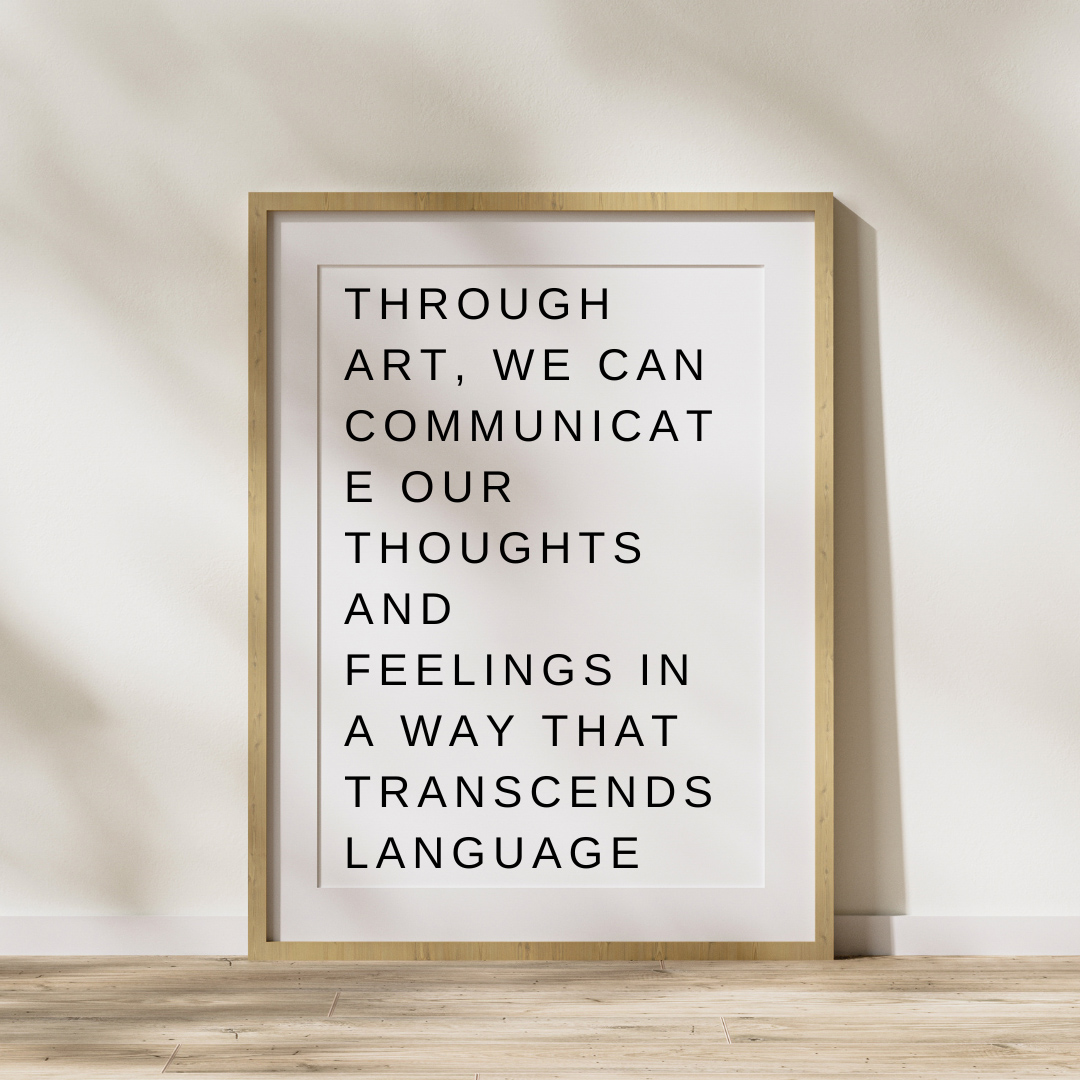
“Through Art, We Can Communicate Our Thoughts and Feelings in a Way That Transcends Language”
Art’s ability to transcend language is part of what makes it a powerful tool for art therapy. At times, people engaging in art therapy may not even be aware of how their hand is guided along the canvas, paper, or other medium. Art therapy can communicate more deeply to the subconscious, where it can have a therapeutic effect.
How Art Therapy Can Aid in Recovery
Art therapy is a powerful tool in the recovery process. This is especially true for those facing additional challenges with substance use disorder, such as a history of mental health problems or past trauma.
Exploring Emotions
Through creative expression, you can explore emotions and experiences that may be too difficult to articulate through words alone. In recovery, emotions such as fear, guilt, and shame often surface, and art therapy provides a safe and non-judgmental space to confront these feelings.
Non-Verbal Expression
One powerful tool art therapy leverages is its existence as a non-verbal outlet to express your feelings. Many people struggle to verbalize complex feelings, but this is particularly true where SUD, betrayal, loneliness, depression, anxiety, shame, and other emotions converge. Creating art allows expression without the pressure of finding the right words.
Relaxation
Whether through painting, drawing, or sculpting, the act of creating something can also be therapeutic in itself. Creation can help you release pent-up emotions, offering you a sense of relief and catharsis.
Self-Reflection
Another significant aspect of art therapy is that it encourages self-reflection. The artwork created during therapy sessions often serves as a mirror, reflecting internal struggles, hopes, and fears. As you engage with your art, you can gain insight into your emotional state, which can lead to greater self-awareness and personal growth. This increased understanding can be transformative in a recovery setting, as it can help you identify triggers, process traumas, and rebuild self-esteem.
Accomplishment
Finally, art therapy also fosters a sense of accomplishment. For people who are struggling with recovery, creating something positive can be a critical sign that they are still capable of accomplishing great things.
Tips for Making the Most Out of Art Therapy
As someone who’s participated in art therapy and then gone on to create my own art to see me through my recovery, I’ve rounded up a few tips for making the most out of your art therapy opportunity.
Process over Product
First, anyone who begins art therapy should embrace the process over the product. The goal here isn’t to become the next Picasso. Avoid judging yourself or comparing your artwork to others. Instead, focus on expressing your thoughts and emotions through the art form you choose, whether it’s painting, drawing, or another medium.
Keep an Open Mind
Approach each session with an open mind with few, if any, preconceptions. Art therapy may bring up unexpected feelings or memories, and allowing these emotions to surface naturally is important. The process of making art can lead to insightful revelations, but only when the creator is open to any possibilities that may come along.
Stick with It
As much as you can, try to stay consistent with the process. Just like with any other form of therapy, regular participation in art therapy is key to reaping the full benefits. To maximize the benefits of art therapy, use the session as a conversation starter with your counselor or therapist. Share what inspired your creation, how you felt while making it, and what meaning it holds for you.
Get (More) Creative
Finally, don’t be afraid to explore different artistic mediums. If you are familiar with making paintings, try sculpture. If you’ve been too intimidated to try a particular type of art, give it a shot; maybe you’ll learn something about yourself in the process.
Art Therapy FAQs:
By tapping into self-expression through various forms of art, you can explore your emotions, resolve conflicts, reduce stress, and achieve personal insight. Here are the answers to some frequently asked questions about art therapy.
Explore Our Art for Recovery Resources
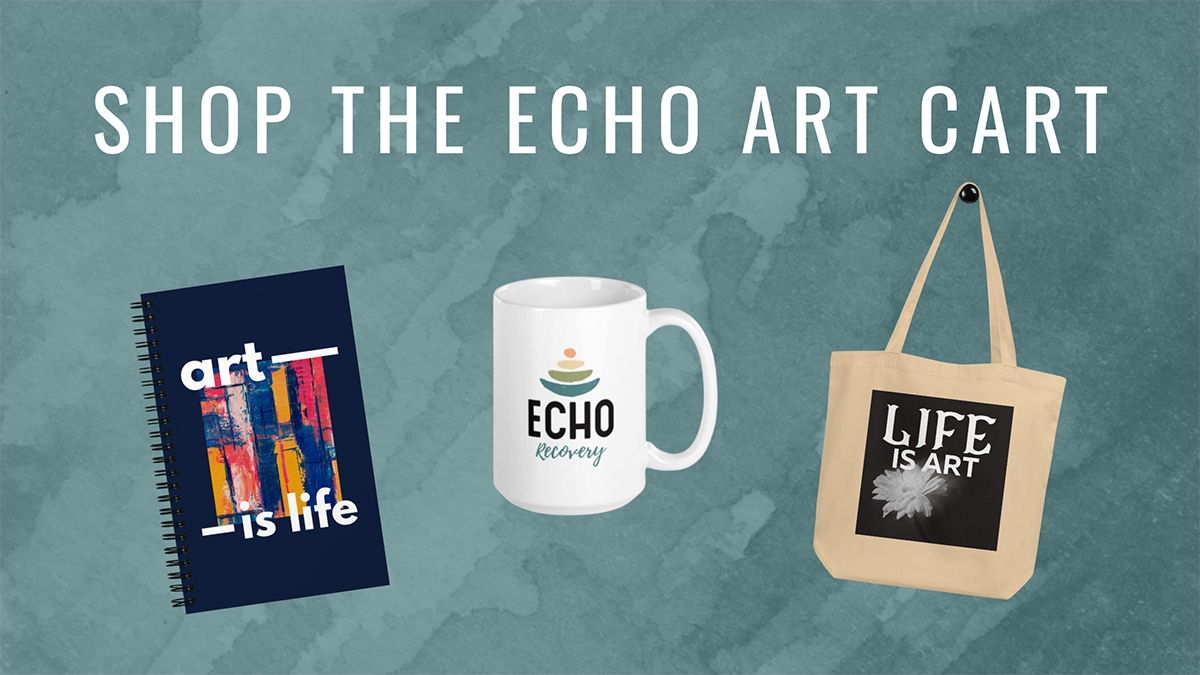
The ECHO Foundation firmly believes in the power of art in recovery, and we are proud to host many resources for art in recovery. Explore our Art Corner to learn more about art for recovery and be sure to check out our recovery merchandise shop. All proceeds go back to helping individuals in recovery. Thank you for your support!
Resources:
- Kelly-Irving, M., & Delpierre, C. (2022). The embodiment dynamic: The link between adverse childhood experiences and physical health in adulthood. Frontiers in Psychology, 13, 947264. https://doi.org/10.3389/fpsyg.2022.947264
- Hughes, K., Bellis, M. A., Hardcastle, K. A., Sethi, D., Butchart, A., Mikton, C., Jones, L., & Dunne, M. P. (2017). The effect of multiple adverse childhood experiences on health: A systematic review and meta-analysis. The Lancet Public Health, 2(8), e356-e366. https://doi.org/10.1016/S2468-2667(17)30118-4
- Merrick, M. T., Ford, D. C., Ports, K. A., & Guinn, A. S. (2019). Prevalence of adverse childhood experiences from the 2011-2014 Behavioral Risk Factor Surveillance System in 23 States. JAMA Pediatrics, 173(3), 250-253. https://doi.org/10.1001/jamapediatrics.2018.3626
Jenny Weatherall is the co-owner and CEO of Eminent SEO, a design and marketing agency founded in 2009. She has worked in the industry since 2005, when she fell in love with digital marketing… and her now husband and partner, Chris. Together they have 6 children and 3 granddaughters.
Jenny has a passion for learning and sharing what she learns. She has researched, written and published hundreds of articles on a wide variety of topics, including: SEO, design, marketing, ethics, business management, sustainability, inclusion, behavioral health, wellness and work-life balance.
